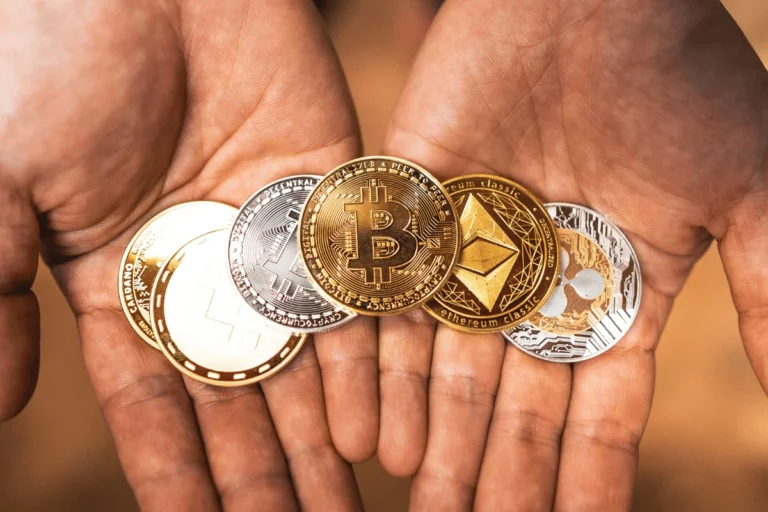Crypto the future money
As one of the driving forces in modern society, cryptocurrencies have quickly emerged as a disruptive force, heralding a new era in finance and economics. Cryptocurrencies represent a decentralized alternative to traditional currencies offering greater security, transparency and financial inclusion – not forgetting their blockchain technology’s transformational potential of reshaping industries and empowering individuals – paving a pathway toward a digital economy resembling its inevitable arrival. Cryptocurrencies’ transformative potential opens endless opportunities and redefines conventional notions of money while challenging conventional notions of money as we transact, invest and visualize our financial futures anew.

Bitcoin: The Future of Money?
No one disputes that our world is shifting toward digital. From purchasing products online and booking flights/hotels, all this can be completed with just a few clicks of a mouse. Money has also become more virtual. PayPal and Apple Pay/Alipay provide convenient ways of paying for almost anything with just the swipe of a finger, yet what would happen if someone created an independent digital currency that governments or banks didn’t control? Would such a system compete with traditional currencies, and more importantly, would you trust it as your main source of funds? Documents found at the Library of Congress show plans for electronic currencies have been in development since 1990. One constant over the past 25 years has been our ongoing effort to develop digital currencies like Bitcoin. While some may perceive Bitcoin as a mere fad, others see its bright future. Your opinion depends on your perspective of whether Bitcoin should remain just a passing fancy or become mainstream money.
What is Bitcoin?
Let’s start with the basics: Bitcoin is a digital currency that allows users to exchange money without an intermediary, such as a bank. It was created in 2009 by a mysterious programmer known only by the pseudonym Satoshi Nakamoto. Because it exists on the internet, Bitcoin is decentralized. It means that there is no government or central bank that controls it. Each currency user owns a digital wallet that they can use to send and receive Bitcoin. These wallets use a combination of public and private “keys” to protect against theft or hackers. You can think of your public key as your bank account number, while the private key is your PIN only you know.
What is a digital currency?
A digital currency, such as Bitcoin, doesn’t exist in any physical form, such as coins or notes. Instead, it’s a form of money that only exists online. There are many other types of digital currencies besides Bitcoin. Some are backed by gold, and others are backed by other assets like commodities. Still, others are backed by nothing at all, which makes them highly speculative investments. The advantage of digital currency over traditional forms is that transactions are immediate. You don’t have to wait for a check to clear or travel to a bank to deposit money. Instead, you simply transfer funds from one account to another using a computer or mobile app.
How does Bitcoin work?
To understand how Bitcoin works, it helps first to understand the blockchain. A digital ledger, the blockchain, is used to track any transaction, including money, that takes place online. Originally designed as a means for managing Bitcoin transactions, today, its usage extends well beyond this purpose. Operating under peer-to-peer networking rules ensures the efficiency and accessibility of 24-hour operations without being vulnerable to hacks or hijackers.
Why has there been so much buzz about Bitcoin?
Bitcoin saw its popularity skyrocket in 2017 when its value surged from around $900 to more than $19,000 per coin – giving investors cause for alarm. Since then, however, its market has taken an unexpectedly sharp drop, leaving them scrambling for options and worrying. Bitcoin’s sudden surge can be explained by three key factors. First is its popularity – in recent years, cryptocurrency such as Bitcoin has received considerable press and publicity. Many have come to believe that cryptocurrency is the future of money and that investing in it could yield substantial profits. Demand for alternative currencies has skyrocketed as economic conditions in many nations become more unstable. High inflation and fluctuating interest rates have caused the value of cash in many developing nations to decline, leading to an increasing need for alternative currencies like Bitcoin. Concerns regarding online security – Hackers have stolen millions from online bank accounts, prompting many people to question whether digital money can truly be trusted, with its decentralized network being seen as a possible solution.
Pros and Cons of crypto

Should you invest in Bitcoin?
If you have cash to spare and are willing to risk, investing in Bitcoin may be worth exploring as you wait to see if it ever becomes a legitimate currency. Remember that this is a highly volatile investment, and you’ll likely lose money if you try to cash out too early. It’s also important to remember that the value of Bitcoin is only as good as the network that supports it. If people lose faith in the system, the value of each coin will drop. It would help if you considered other entities first. Do you want to be held hostage by a system that forces you to rely on delivering just 50 cents or 10 cents of information? Perhaps it’s time to represent your coins in trade or a market allowing this transaction.





